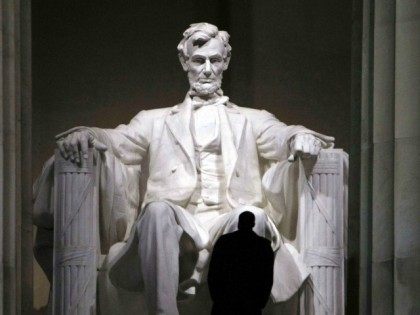Sen. Chris Murphy: Right-Wingers Claim Gun Rights ‘God-Given’ Because of Fear
During a September 8 speech to the National Press Club, Senator Chris Murphy (D-CT) suggested right-wingers claim gun rights are “God-given” out of fear.
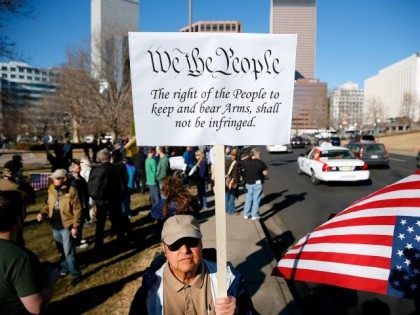
During a September 8 speech to the National Press Club, Senator Chris Murphy (D-CT) suggested right-wingers claim gun rights are “God-given” out of fear.

Legendary Los Angeles Dodgers announcer Vin Scully gave an American history lesson Monday during the team’s 4th of July broadcast against the Baltimore Orioles when he shared some interesting and fun facts about the Declaration of Independence. Follow Trent Baker on Twitter @MagnifiTrent

“I believe that if Breitbart were covering the Continental Congress, the Founder our readers would identify with would be John Adams,” Breitbart Senior West Coast Editor Rebecca Mansour said.
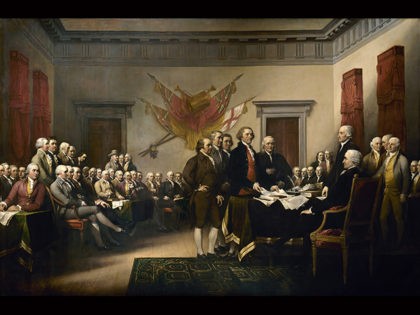
HOUSTON, Texas — To celebrate the 240th birthday of the United States, Texas criminal defense lawyers across the 254 counties in the Lone Star State are taking to the courthouse steps to read the Declaration of Independence. The event started in Harris County, Texas, but the reading this year is in every Texas county.
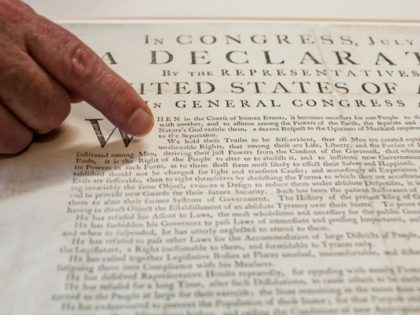
When the Ninth Circuit ruled that Americans have no right to carry a concealed handgun outside the home, they were effectively alienating an “unalienable” right.
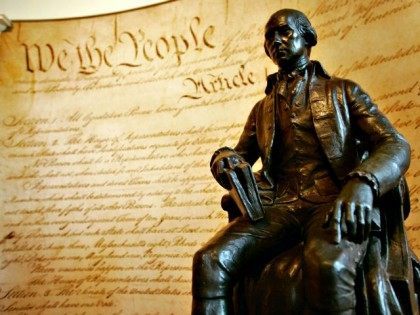
Democrat Louisiana state representatives launched an attack against the phrase “all men are created equal” in the Declaration of Independence Wednesday in response to the state House’s consideration of an education bill
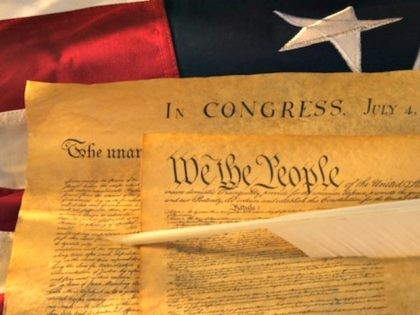
This Saturday, February 28, was the 156th anniversary of Abraham Lincoln’s Cooper Union Address, which was delivered at Cooper Union, in New York City. It was the speech that launched Lincoln to the White House in the election of 1860; it was the speech that paved the path for a newly-formed Republican Party to take the White House for the first time, buoyed by its identification with the boldest and most unmistakeable principles.
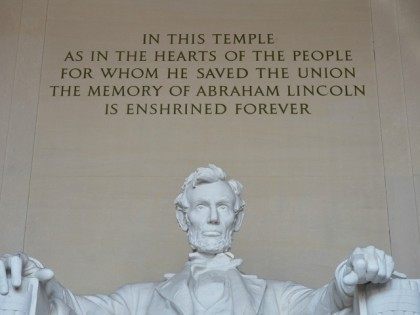
During the February 24th airing of the Steve Harvey Show, Democrat presidential candidate Hillary Clinton said there is a constitutional right to own a gun, but that it is balanced out by the “constitutional right to life, liberty, and the pursuit of happiness.”
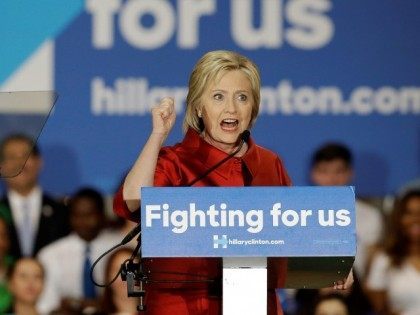
Martin Luther King Jr. Day is centered around the civil rights leader’s January 15 birthday and was signed into law by President Ronald Reagan in 1983. Though there are many reasons for celebrating and debating his life’s legacy, Martin King Jr. is primarily remembered in the 21st century for his famous “I Have a Dream” speech.
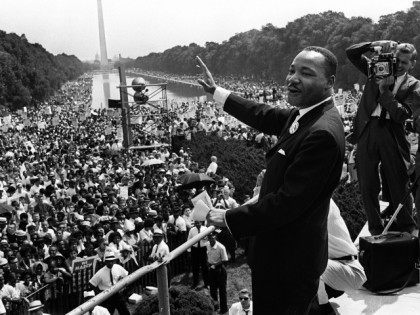
A statue of founding father and writer of the Declaration of Independence Thomas Jefferson is sparking debate at the University of Missouri, with some students demanding that the statue be removed over Jefferson’s “offensive” history as a slave owner.
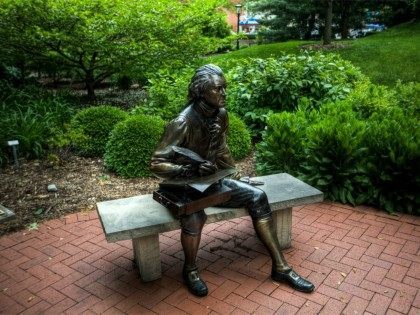
Peter Schramm, the late Professor of Political Science at Ashland University, used to tell a moving story about his immigration to the United States. As a child fleeing communist-occupied Hungary, he asked his father where the family would go. “We are going to America,” his father replied. “Why America?” Peter asked. “Because, son,” his father answered, “we were born Americans, but in the wrong place.”
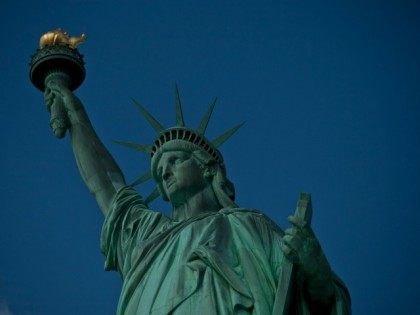
One hundred and fifty years after the end of the Civil War, it is becoming increasingly clear that there are two Americas—one where the principles of constitutionally limited government and individual liberty are still revered, the other where statism and the trampling of individual rights are on the rise. Widespread resistance at the state level, however, will require two elements: strong governors and strong state legislatures willing to vigorously assert their 10th amendment rights.
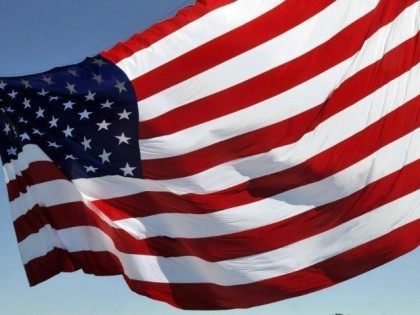
Though the very phrase “American Exceptionalism” is often mocked as simple-minded flag waving, there are concrete reasons that the American civilization is unique. The United States has a special place in world history. Despite the bumps, bruises, and outright contradictions that the country has muddled through in its very short existence, Americans can take pride in its numerous accomplishments, actions, and principles throughout the last two centuries.
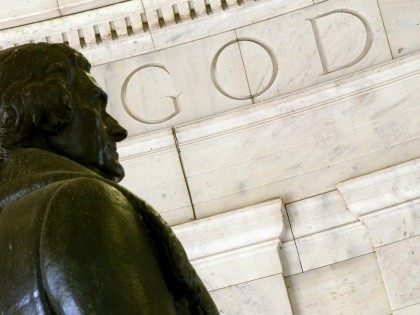
Americans celebrate the 4th of July with fireworks, barbecues, picnics and all other kinds of enjoyable festivities. It’s wonderful that we live in a free country and are able to enjoy the fruits of our prosperity and freedom. However, merely wearing red,white, and blue, shirts with bald eagles on them, and other patriotic symbols is only a superficial way to celebrate America’s hard-fought for independence.
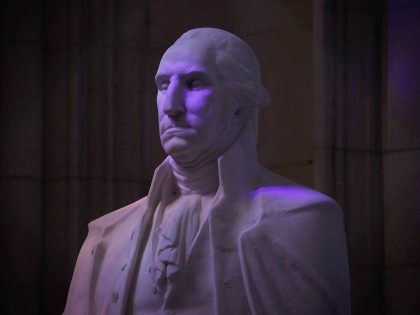
The The signing of the Magna Carta, 800 years ago, was one of the most monumental events in human history. Originally created as a compromise between British nobles and King John at Runnymede, near London, on June, 15 1215. This compact assured that some basic rights of British citizens could not be violated; it would move the English-speaking world in a direction of putting law above men, even kings.
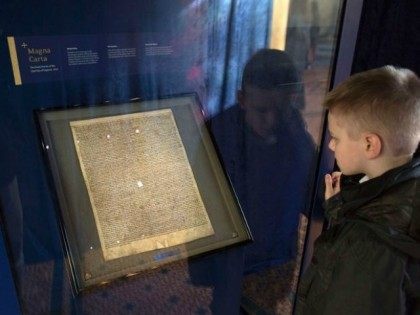
If we don’t acknowledge an authority higher than politics and bureaucracy, we’ll never have an inclusive, tolerant, fair nation, because those virtues will always be subject to the flawed and fickle judgment of imperfect men and women, who are always influenced by personal passions and ambitions, no matter how loud their claims to the contrary.
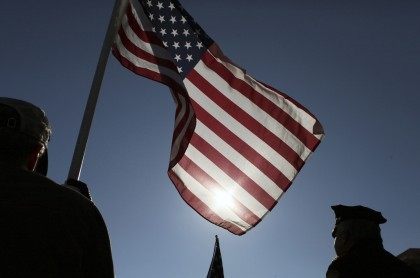
The great Abraham Lincoln historian Harry V. Jaffa, one of the great thinkers of his generation, has passed away at the age of 96.
